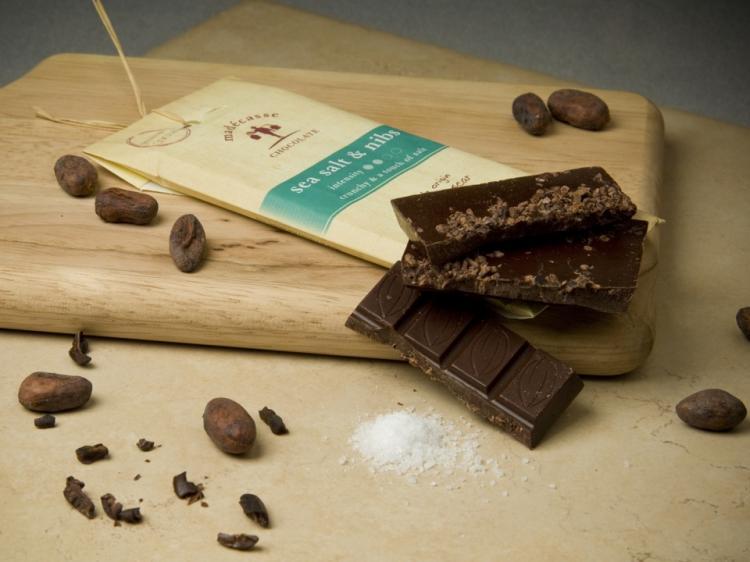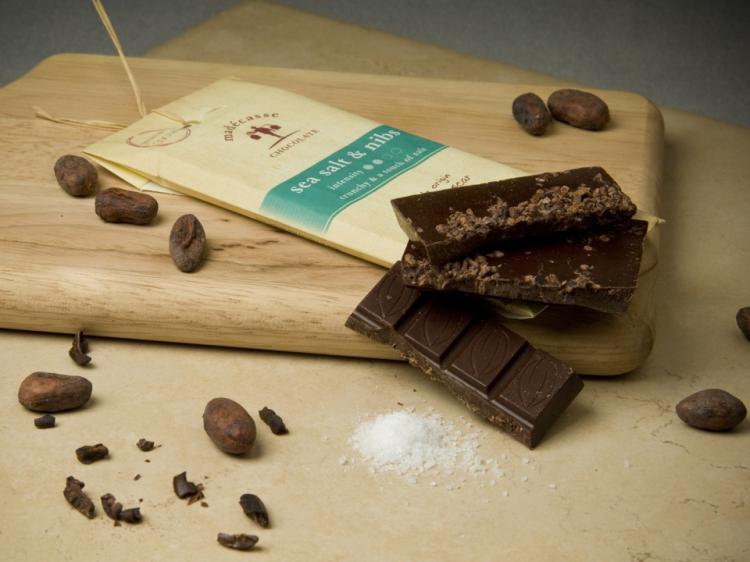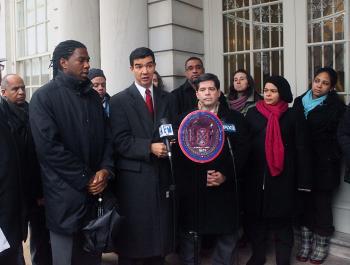Chocolate made in Madagascar: A Labor of Love (Photo Gallery)
Working with high-quality chocolate has never been quite as sweet as it has been for Joe Salvatore, one of the core members of Madécasse.

Sea salt and nibs-one of Madecasse'smost popular chocolates.Courtesy of Madecasse Chocolates
|Updated:





